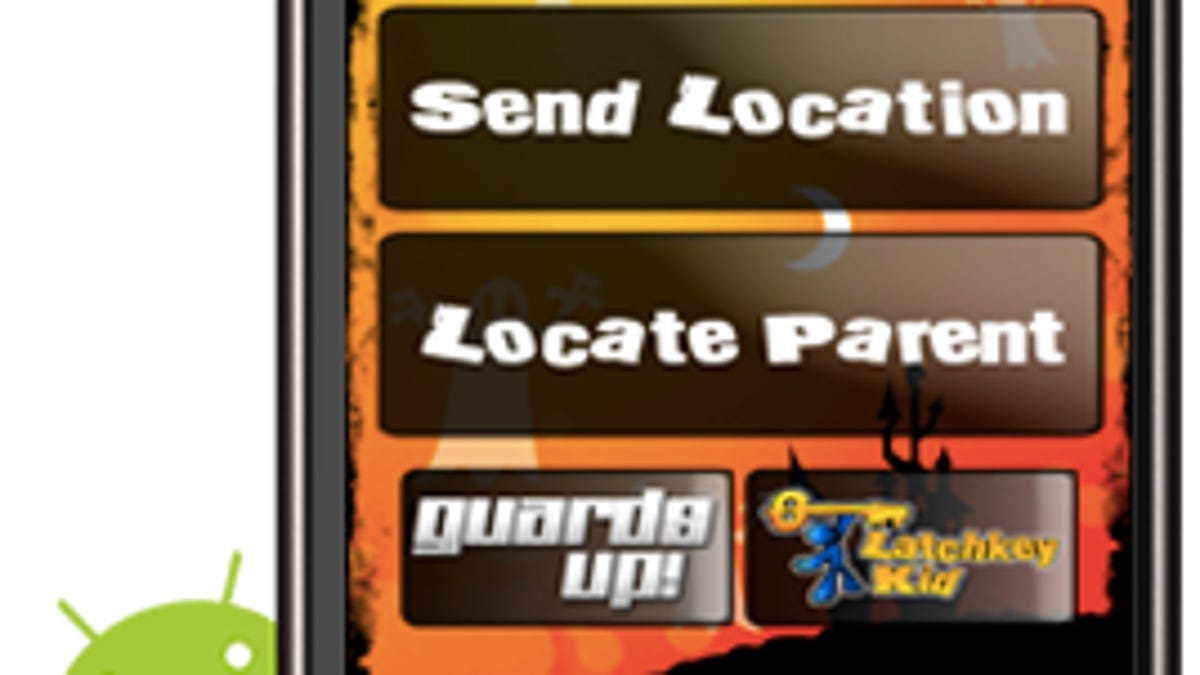Some app makers hope to scare the hell out of you
Capturing new users can be a challenge for location-based apps. This Halloween there's a new sales strategy: Scaring parents.

Today is Halloween and parents are getting bombarded with messages that their kids are at risk. So is CNET News.
"One night every year, parents let their guard down in the U.S. and allow their children to wander the streets of town for hours in the dark," begins a pitch from a location-based app maker to CNET News. "The reality is that every 40 seconds someone's son or daughter is reported missing, totaling 800,000 missing children in the United States each year."
These stats are scary, for sure. They're also misleading* and frequently used to get parents to use child-tracking devices and apps. The tactic is understandable, especially given how hard it is for a location app to break through app clutter and get noticed.
Competition is fierce. Dozens of startups, including Life360, Glympse, Glassmap, Nearparent, and I'mOK are pushing location-based apps that differ slightly but basically offer customers the same thing: Your phone lets you watch your friends and family on a map thanks to GPS technology.
There's even an Android app called Trick or Tracker ($4.99) designed specifically for Halloween. It sends text messages with location data that lets parents establish a virtual fence for their children to stay within. If children stray outside, the parents are notified. There's also a "where's my parent?" button for the kids.
Location-based apps got a boost in February 2009 when Google launched its location app called Latitude. Google let developers build products using Latitude technology so startups weren't scared. Google also didn't do much to market the product.
Last month, however, Apple entered the market with Find My Friends, causing some to wonder if smaller companies would start getting squeezed out (naturally, Find My Friends only works on Apple products). Apple, not surprisingly, didn't have to resort to scare tactics for its marketing, and the Find My Friends app meets the fun and efficient requirements of a good location based app.
The issue for smaller competitors is whether they're doomed because of Apple. Life360, the biggest player in the category with 5 million users, says not at all.
Life360 says that since Apple it has seen a 10 percent increase, on average, in the number of new families signing up each week (now up to 110,000). A spokesperson for Life360 says the company is "cautiously optimistic" that Apple's competition is good news. Also in its favor is that Life360 app has significantly more families using the Android app (72 percent of total users) than the iPhone.
Life360's plan is to scale quickly with a freemium model, develop a trusted relationship with users through regular engagement, and then build the business with value-added services for industries like home security and insurance.
That's a dull approach, but it just might work. This Halloween, startups should leave the scare tactics to local TV news stations and haunted houses.
*Fear is a strong sales tactic, but these stats are misleading and flat-out wrong. The reality is out of the 800,000 children younger than 18 reported missing each year, 200,000 were abducted by family members, according to the National Center for Missing and Exploited Children. Children can also go missing after running away from home, getting lost or being injured. The truly horrifying statistic is that 115 children are the victims of real kidnappings each year. That number, even though small compared with 800,000, is terrifying enough.

